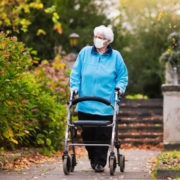Steps Nursing Homes Can Take to improve Residency life After COVID-19
The COVID-19 pandemic created enormous health and economic chaos across the globe. It has claimed millions of lives worldwide and almost a hundred thousand lives from nursing homes in the United States.
The impact of COVID-19 is felt in retirement homes and assisted care facilities where residents are most vulnerable. With the presence of the Coronavirus, this has exposed more problems and issues that have been around before the COVID-19 pandemic.
Possible Steps to be Taken Moving Forward:
Improving Family Involvement in Residents Care Plan
In most cases, nursing homes determine the care that the resident will receive. However, the resident and their family have the right to participate in developing the resident’s care plan.
A personalized care plan to address individual needs is necessary to assure each resident receives the best possible care. Every care plan must be written and prepared by a doctor, nursing home members, a registered nurse, and the resident’s family member or legal representative.
Spending extra time on each care plan and adding in key measures on what to do if an epidemic or pandemic takes place during the residents stay can ensure future success and ease some stress that comes with a public health crises such as COVID-19.
More 24-hour Caretakers Onsite
Understaffing can be caused by several inside and outside factors. It is crucial for nursing homes to make sure they’re able to provide the necessary number of caretakers so that scheduling conflicts and gaps of workers don’t create larger issues. The shortage of staff leads to poor quality of life for the residents. Not having enough staff means longer working hours for those on duty which contributes to work fatigue that can lead to higher risks of work errors.
Along with improving the quality of care that residents receive in retirement homes or nursing care facilities, they must implement strategies and changes to improve the working environment as well as their wages based on the basic labor standards.
Providing each staff member with Personal Protective Equipment (PPEs) and keeping these kinds of tools on site at all times will also help better prepare workers for any form of in the moment public health crises.
Eliminate Discrimination
Then there’s the discrimination on a resident’s Medicaid eligibility because of Medicaid’s low pay rates. Many care facilities will give substandard care services to Medicaid beneficiaries. To fix this matter and provide equal quality medical care for every resident, Medicaid discrimination would have to be eradicated.
Another way to up the quality of the resident’s medical care access would be to bring physicians on site. Currently most facilities don’t have physicians on site which means residents need to be brought to hospitals or Emergency departments for treatment and medication. Trips to hospitals can agitate residents for they are not familiar with the people and the environment. Also, transferring elderly residents to hospitals increases the risk of various types of infections.
Although some physicians do drop-in visits, it is still beneficial to have a doctor or nurse practitioner on site 24/7 to provide assessments. This lessens the residents’ stress and exposure to diseases and infection, especially in times of crisis like COVID-19.
While these recent times have been trying for the entire world, nursing homes across the world, and especially within the US, have been working tirelessly to improve the quality of life and safety for residents and workers alike. Improvements in practices and procedures will inevitably continue to come to living facilities as COVI-19 continues to change the world we live in.
Oxbow Living offers Assisted Living & Memory Care out of Nebraska and to the Surrounding Cities: Ashland, South Bend, Greenwood, Murdock, Elmwood, Ithaca, Mead


